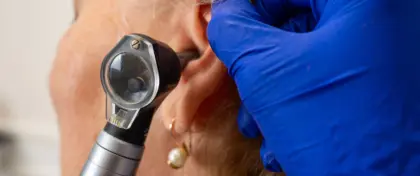
Causes of Hearing Loss
Understanding the causes of hearing loss is the first step toward effective treatment and long-term hearing health. Several factors can impact your ability to hear clearly:
Common Causes of Hearing Loss
- Ageing: Hearing naturally declines with age, especially after the age of 60.
- Noise Exposure: Regular exposure to loud sounds—such as concerts, construction, or headphones at high volume—can cause permanent damage over time.
- Ear Infections: Infections can lead to temporary hearing loss or, in some cases, more lasting issues.
- Perforated Eardrum: A hole or tear in the eardrum can interfere with sound transmission.
- Ménière’s Disease: This inner ear disorder affects both hearing and balance.
- Genetics: A family history of hearing loss may increase your risk.
- Earwax Blockage: Excess earwax can block the ear canal and reduce hearing.
Tip: If you're experiencing any hearing changes, it's important to consult with your doctor. Early intervention can help protect your hearing and guide you toward the right treatment.
Types of Hearing Loss
Knowing the type of hearing loss you're dealing with helps in identifying the right solution. Here's a quick overview:
Conductive Hearing Loss
Sound is blocked from reaching the inner ear due to problems in the outer or middle ear.
Ear infections, fluid buildup, earwax, eardrum damage, or bone abnormalities.
Sensorineural Hearing Loss
Caused by damage to the inner ear or auditory nerve, making it harder to hear soft sounds and understand speech.
Ageing, long-term noise exposure, genetic factors, head injuries, or viral infections.
Mixed Hearing Loss
A combination of conductive and sensorineural hearing loss.
May result from multiple issues affecting both the outer/middle ear and inner ear.
